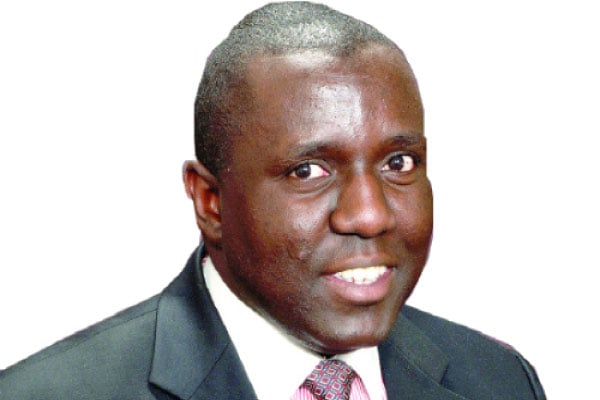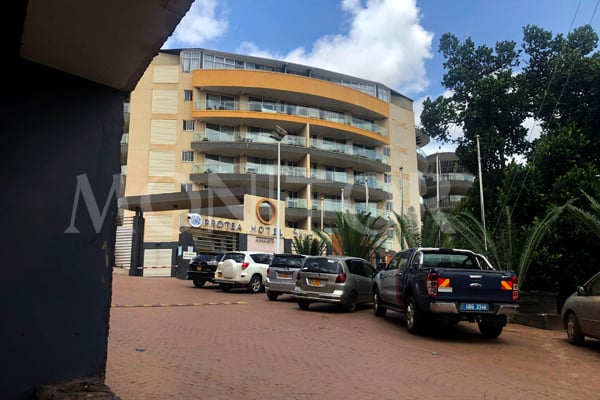Prime
Season of anxiety. Recession starts to bite, creditors pounce

Author: Mr Karoli Ssemogerere is an Attorney-at-Law and an Advocate.
There is a high level of uncertainty in the country. Post pandemic recovery is patchy. Many financial obligations entered into during the pandemic are now maturing. Ham Kiggundu and Patrick Bitature are just the very signal that the underlying economy is having trouble picking up. The President declared full reopening in January aware that key sectors needed to be burnished into full activity to maintain revenue collections. So far the small spurt in activity post January is dying out.
The shock at the pump is a cause of concern. Wholesale energy prices for premium motor spirit - PMS “super petrol” are up 30 percent, and automotive gas oil “AGO” is up 60 percent catching up and exceeding petrol prices. AGO is the principal fuel in the transport and logistics sector, which in turn is increasing the price of foodstuffs and everything delivered by road.
Uganda has maintained low inflation because it grows most of its food and for years has become the region’s food basket exporting grains, sugar, poultry products to her neighbours while maintaining a well- nourished population at home.
The challenge has been in healthcare, education and social services, not food. Food is becoming a security issue in many countries, grain importers Egypt, Ethiopia, Somalia are facing rising prices for wheat and cooking oil formerly sourced from Ukraine and Russia.
Banks are eager to revive their balance sheets by shedding non-performing assets after the second moratorium on debt repayments expired in January 2022.
Some banks fell sharply in rankings like DFCU on a rise in its non-performing assets. Some loans like those belonging to Simba had been in NPA status as far back as 2017 when Crane Bank closed. Sudhir Ruparelia was counting on executive benevolence when he caved in and declined to collect on them only for BoU to close Crane Bank under pressure from a number of centers after approving his accounts for years.
In 2021, the big banks played on their reserves, lending the government without the bother of recovery, a delay which may have some contagion effects on the economy. It is an open secret that some aspects of commercial credit are some disguised form of money laundering and influence peddling, a development that even the court system is yet to come to terms with.
While domestic money lenders are subject to the Money Lenders Act, external creditors lay foreign lines of credit inside commercial banks avoiding regulatory scrutiny. Some partly engage with the domestic regulators through agency agreements.
Business in Uganda is a mixture of foreign capital, crony capitalism, and a small-holder peasant base where domestic business people ally with politically exposed persons to obtain the necessary influence to stay afloat. Government in many cases is kept at bay by political promises to keep some sectors free of taxation, which have become difficult to keep.
The formal sector is small. Just one million Ugandans are on payroll, more than double the average of 400,000 Ugandans who paid the anchor PAYE tax 20 years ago. But this is in a population of 45 million.
Foreign players who brave it to Uganda have been forced to exit after years of flat growth, losses and other challenges of the dominant shopkeeper model. Merchandising has grown even more fragmented, disabling the urban complexes where landlords have shifted from bank payments to cash payments for rent to avoid the rental income tax.
Political actors are alive to the discontent at the state of affairs. Parliament put the brakes on the Vinci coffee agreement wary of the political heat among voters at home.
It was again a situation of government shooting too early to sap the energy of a successful intervention, massive replantation of coffee to boost foreign exchange.
The announcement that the King Fisher wells will produce crude oil is a ray of hope to restore confidence in the economy even though the pipeline is being filibustered in Europe where its principals Total need to raise funds for their portion of the East African Community Pipeline.
So far the only force cooperating is the force of Mother Nature, the rains have showered thirsty shambas with enough rainfall to ward off the threat of empty stomachs this year.
Mr Ssemogerere is an Attorney-At-Law and an Advocate.




